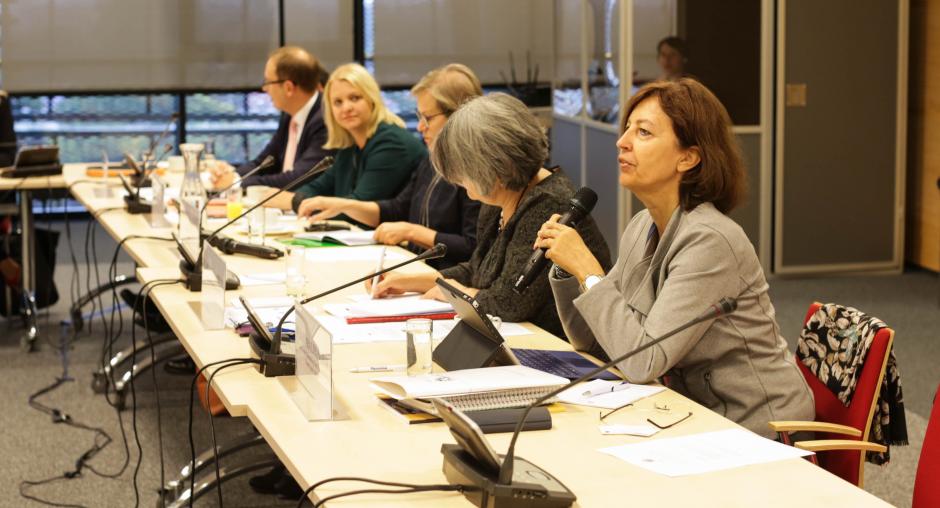Improving the work of democratic institutions, including through gender-sensitive laws, in focus at ODIHR Women’s Power Breakfast in Warsaw

The OSCE Office for Democratic Institutions and Human Rights (ODIHR) held its annual Women’s Power Breakfast in Warsaw on 21 September 2017, focusing on how to promote and advance women’s political participation and gender equality through the work of democratic institutions.
The event, organized on the margins of the OSCE Human Dimension Implementation Meeting to celebrate and mobilize the collective power of women leaders, gathered 50 representatives of governments, civil society organizations, international organizations and academia. They discussed initiatives and different approaches to gender mainstreaming in democratic institutions, particularly in parliaments.
“Gender mainstreaming is a necessary tool to transform the structures, procedures and culture of democratic institutions so they serve all citizens, regardless of their gender,” said ODIHR Director Ingibjörg Sólrún Gísladóttir. “But there is a huge gap when it comes to the implementation of gender mainstreaming. It is not words, but deeds that matter. And, at the end of the day, it is through budgets that the real decisions are made.”
Barbara Limanowska, Senior Gender Mainstreaming Expert at the European Institute for Gender Equality (EIGE), emphasized the need to initiate a dialogue with parliaments on different approaches to making these institutions serve women and men equally.
“Parliaments strive to make society fairer with the legislation they pass, but it is also important that they look at their own internal ways of working,” she said, adding that EIGE will develop, following consultations with national and regional parliaments, a practical self-assessment tool to help parliaments evaluate their gender-sensitivity.
Gender mainstreaming, an internationally recognized strategy to achieve gender equality, serves to identify gender gaps and address them, while taking into account the interests and views of both women and men. Since 2004, the OSCE Action Plan for the Promotion of Gender Equality has been a key instrument for OSCE participating States in their efforts to advance towards this goal.
“Providing legislators with tools they can use in promoting gender equality, including in the laws by which we all are governed, is an important part of ODIHR’s work in this area,” said Tiina Kukkamaa-Bah, Chief of the Democratic Governance and Gender Unit at ODIHR. “Making Laws Work for Women and Men: A Practical Guide to Gender-Sensitive Legislation published earlier this year is just one such tool, providing a roadmap for lawmakers on how to ensure that laws are gender-responsive before they are put into practice.”
